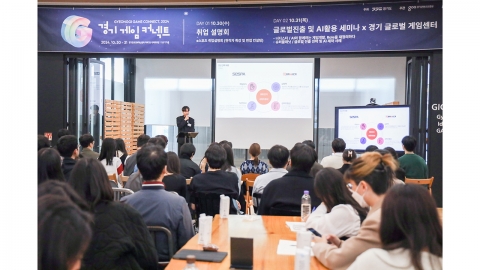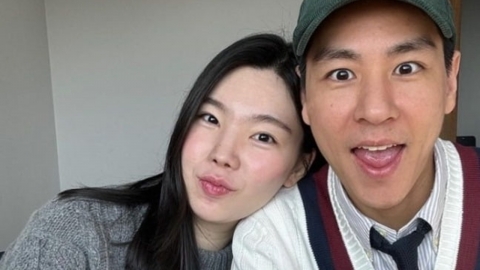[News Now] Harris vs Trump 'Final Day'...It's still a close game.
■ Host: anchor Lee Harin
■ Starring: Professor Kim Jae-cheon, Graduate School of International Studies, Sogang University
* The text below may differ from the actual broadcast content, so please check the broadcast for more accurate information. Please specify [YTN NewsNOW] when quoting.
[Anchor]
Vice President Harris and former President Trump are targeting competing stocks at the last minute, and an ultra-close race continues. The number of voters who voted in advance also exceeded 78 million. Let's talk with Professor Kim Jae-cheon of Sogang University's Graduate School of International Studies about the last variables and prospects for the presidential election. Welcome.
[Kim Jae-cheon]
Hello,
[Anchor]
Let's check the first keyword first. The key to entering the White House is Pennsylvania. Vice President Harris and former President Trump worked on Pennsylvania before the last campaign. Is this the idea that if you catch Pennsylvania, you win the presidential election?
[Kim Jae-cheon]
That's right. First of all, the number of electors is the highest at 19. And if both candidates fail to bring Pennsylvania, their election formulas become complicated. It's hard to win without beating Pennsylvania.
[Anchor]
It's hard to predict because the polls are up and down, but who's a little bit ahead in Pennsylvania according to the polls so far?
[Kim Jae-cheon]
Since there are mixed polls, a New York Times poll released on the 3rd shows Harris winning by 1%. And yesterday, a poll by The Hill, a political media outlet released on the 4th, showed that Trump won by 1%.
[Anchor]
What do you expect from the professor?
[Kim Jae-cheon]
Since it is so close that it is around 1%, I don't think you will really know until you open the lid.
[Anchor]
So what race states do we have to win other than Pennsylvania?
[Kim Jae-cheon]
Now, all seven contending states are important contending states. [Anchor] We're showing you the contestants in a graphic manner.
[Kim Jae-cheon]
In general, the four states below, the so-called Sun Belt states, are still advantageous for Trump. And the so-called Rust Belt Wisconsin, Michigan, Pennsylvania in the Northeast had this prediction that Harris would be advantageous. That's two months ago, three months ago. Now, the New York Times poll I mentioned earlier and The Hills poll is 4:2:1 for the seven contending states? In this way, Harris wins in four places, and the New York Times. And two are tied and one is Trump winning. The Hills is the same, but both candidates are winning and losing. All of those states are different. Arizona is the only state with the same poll results. Only in Arizona, Trump wins, both polls are the same, and the rest are all different. So all seven contending stocks seem to have become important contending stocks.
[Anchor]
But Vice President Harris is particularly focused on the Pennsylvania campaign, and of course Trump is. Former President Trump has been going around several states and has been forced to do so. What's the difference in strategy? For both candidates
[Kim Jae-chun]
Trump is on the right track, Georgia, North Carolina. North Carolina seems to be cracking down on house rabbits in North Carolina because of the results of such polls that North Carolina is shaking. And now we're heading to Pennsylvania. In the case of Trump, as always, he was in the 2016 presidential election and as in the 2020 presidential election, he is expected to visit Michigan at the end of this campaign.
[Anchor]
According to the results of the polls just before the presidential election, former President Trump is showing a little lead in competing states, and Harris seems to be leading the overall poll. How should I interpret this?
[Kim Jae-cheon]
As we can see from the results of the 2016 presidential election, Hillary Clinton was much higher in terms of overall and national votes. I won 3 million votes, but in the contestant states, I lost almost all of my contestants to Trump. So, the concern of the U.S. is which state will take the seven contending states. As I said earlier, however, all contending states are very close to 1%, so it is very interesting to see how the results of the seven contending states will be.
[Anchor]
In fact, there were many cases in the United States where they lost the election even though they won the overall vote.
[Kim Jae-cheon]
There were three or four times, but not many. The most similar example was the 2016 presidential election, and the 2000 presidential election, which George W. Bush won over then-Vice President El Gore, where he had the upper hand in the national vote, but eventually gave up Florida, so he lost in the Electoral College, and George W. Bush won the presidency.
[Anchor]
I've looked at the results of the poll. I'll watch the second keyword on the video.
At the end of the election, the word trash emerged as a new variable, and in fact, there was a lot of tendency to synchronize with Trump if I said anything, but this time, it also affected Harris' camp. The controversy over this garbage, which side did it hit more?
[Kim Jae-cheon]
Wouldn't it have been a little more hurt on Trump's side? Because there are 6 million Puerto Rican Americans in the United States, and 500,000 of them live in Pennsylvania, which is a competitive state among competitive states. However, it is a number that cannot be ignored, which accounts for nearly 4% of Pennsylvania's total voters, and if they vote for Harris, Pennsylvania will win or lose by around 1%, but in that respect, Trump's side was painful. Of course, supporters are trash in President Biden's mouth. But I explained it later. I think it's sort of settled because I said the words from supporters, not supporters, especially from the comedian Hintscliff, were trash.
[Anchor]
We performed like that. We wear street cleaner clothes and perform while flying trash bags, and ride a private jet. He became a talker, but some say that it is a cultural war in the main issue of the U.S. presidential election. The Jewish population is about 3.4% in Pennsylvania, which is a contested state, and a large Muslim population is also flowing in. So I think there will be a lot of concerns about which candidate to target.
[Kim Jae-cheon]
There are several front lines of cultural war, and it can be said that it is a cultural war that I pay attention to. The aspect of this presidential election is approaching the aspect of a male-female confrontation. Abortion rights are also at the center of it. Men feel much more uncomfortable about excessive consideration for LGBTQ people and that such consideration should actually be a policy. Funny thing is Harris seems to be rallying women's votes. Women's votes that are rallying include age groups, and apart from race, women now seem to be rallying in Harris' favor. On the other hand, men, especially young men, used to be pro-Democratic, but this time apart from race, especially in the video earlier, black people, especially Hispanic men, young men, are trying to vote for Trump.
[Anchor]
Why is that? Why do Hispanic men lean toward Trump?
[Kim Jae-cheon]
There are many explanations. Hispanics are culturally conservative. And existing Hispanic immigrants also feel uncomfortable about illegal immigrants. As you all know, Trump has taken a very strong stance on illegal immigration. And there seem to be views that Hispanic men are particularly uncomfortable with Harris' feminist policy of protecting too much women. So in the case of Trump, one of the key things is how much votes are gathered from men, especially young men.
[Anchor]
It was common for black people to support Harris, but should the case of black men be viewed for a similar reason?
[Kim Jae-cheon]
That's right. Regardless of race, I think it's a situation where the vocal cord connection between men and women is most noticeable.
[Anchor]
It is going more like a sex battle than race. Was it the same when Hillary Clinton came out in the past?
[Kim Jae-cheon]
When Hillary Clinton came out, women were rather against her. So women's votes, and Donald Trump, tended to be divided even though there were no exact statistics. And in the last presidential election, Trump took 7% more votes for white women than Biden. But I don't think so this time. As I said before, in the case of white women, it will be a situation where they vote for Harris a little more, including the age group, but as I said before, abortion rights seem to be the most important issue.
[Anchor]
I think turnout will also have a big impact on the U.S. presidential election. What's the advantage of having a high turnout in general?
[Kim Jae-cheon]
If the turnout is high, the progressive Democratic Party has an advantage. Because progressive voters are a little bit less likely to vote. But the turnout was high. And especially, the high early voting rate is the fact that the younger generation of progressive people actively participated in the vote, which is why this hypothesis has been proven to be favorable to the Democratic Party.
[Anchor]
It's said that there were nearly 80 million pre-voting people, is this unusual?
[Kim Jae-cheon]
The early voting rate was 70% in 2020. Of course, it was a pandemic at the time, so we encouraged it and reorganized the system a lot. 70% was a surprising early turnout, nearly double the 35% of the 2016 presidential election. It is predicted that the early voting rate will easily exceed 50% again this time. But this time, the Republican Party is also encouraging active early voting. In particular, the damage from hurricanes like North Carolina and Georgia has been severe, but Republicans think that a lower turnout here is a little disadvantageous to Trump. So when Trump visits North Carolina and Georgia, I'm going to vote early, and you guys should actively vote early. Now that many early voting has been settled to some extent, many Republican-backed voters will participate in early voting this time. However, if you look at the exit polls that are coming out now, there are still exit polls that are slightly more advantageous for the Democratic Party.
[Anchor]
Korea doesn't do exit polls for early voting, but the U.S. does?
[Kim Jae-cheon]
I'm asking, like a poll.
[Anchor]
And since it's done with the electors, the electors may be tied equally. What happens if this happens?
[Kim Jae-cheon]
The total number of electors is 538, so if you divide it by 2, it's 298. That's why the House of Representatives decides on the winner if it's tied like that. So how the House of Representatives is organized is also very important. This time, it's not just an election for the president, but an election for all members of the House of Representatives.
[Anchor]
I heard that there are a lot of Korean people coming out.
[Kim Jae-cheon]
That's right. I think it's about 4 to 6 people. That doesn't mean that we're going to have a free vote in the House of Representatives, and as far as I'm concerned, North Carolina is going to vote for Trump. How many seats do you get in those 50 states in this way, that's how the House decides the president.
[Anchor]
We're looking at the keywords of the U.S. presidential election that will begin shortly. Let's look at the last keyword. Hidden Harris vs Shy Trump. Actually, we've heard Shy Trump for a very long time, but I don't think I've heard Shy Harris or Hidden Harris for the first time.
[Kim Jae-cheon]
Hidden Harris has such a conservative family that the United States has, and should I say it's a little patriarchal? My father has a big say. You're going to vote for Trump in this election, right? But rather than rebelling against it, I'm just going to accept it and actually go to the polls and I'm going to vote for Harris. As I said before, Hispanic men and black men say they won't vote for Harris now, but if you go to the polls, you'll still be likely to do so depending on your racial identity. I don't know about the black man and Hispanic man I mentioned the second time, but those women who obviously didn't express their votes well. In particular, it seems that there were white women, and that's how they are analyzed to be rising up.
[Anchor]
If we look at how much Shy Trump has been in the past, during the 2016 and 2020 presidential elections, former President Trump's vote rate was about 5 percentage points higher than the polls?
[Kim Jae-cheon]
In the case of Michigan, a poll showed that they would win the 2020 presidential election significantly. The poll said Biden would win by almost 9%, but he actually won by 2.8%. That means nearly 6% of the vote was won by Trump.
[Anchor]
What do you think it's going to be like this time?
[Kim Jae-cheon]
Pollsters are confident this time. So in 2016, I hurt my big nose. They say it will be clear this time because they developed new polling techniques and corrected Shy Trump and Hidden Trump and released the results of the poll. If you repeat the same mistakes as in 2020, 7 contending states, and now it's about 1% of the time, so if there's a difference of 2~3% or 4~5%, all 7 contending states can be taken by Trump. [Anchor] I expected how many votes Shy Trump would be. In the meantime, a Harris vice presidential election ad starring Hollywood star Julia Roberts has become a hot topic. Let's take a brief look and continue the story.
[Anchor]
Julia Roberts is such a popular actress that let's film Harris without her husband knowing, do you think this campaign will work?
[Kim Jae-cheon]
Obviously, you think there's a hidden Harris. In the case of women, they are likely to hide their votes. So leave it to your conscience because no one will know who you took it at the polls. . . . Go and vote for Harris according to your conscience. Obviously, I'm not sure if such advertising works, but it seems clear that women's votes are gathering.
[Anchor]
Harris' side will be hoping that this ad will be a last-minute driver of popularity. In the case of former President Trump, he has raised suspicions of fraudulent elections, all the while. So, there are concerns that if I lose the election again this time, I will disobey.
[Kim Jae-cheon]
is correct. I've already laid out a lot of the hem. Republicans have already filed nearly 100 fraudulent election lawsuits during the election. How do you manage mail-in ballots, starting with managing absentee ballots. depending on how one manages one's electoral register In the United States, election laws vary from state to state, but in Pennsylvania, for example, election laws vary slightly from county to county. So, the Republican side, for example, filed a lawsuit saying that such voting in Pennsylvania is illegal, so if the vote is counted in a very close manner like the last election, I think there will be a lot of strategies to declare victory first this time, and if other results come out, we can mobilize a variety of strategies, including lawsuits and delayed operations.
[Anchor]
It took too long for the results of the vote count to come out last time, as Trump pointed out the rigged election. What do you know will happen during the vote count that comes out for more than 10 days? They said that fraud can happen during this campaign. When can the results come out this time?
[Kim Jae-cheon]
As a result of the last election, it took four days for Biden to declare victory. Usually, the U.S. presidential election takes almost a week or more to complete the vote count.
[Anchor]
We come out on the day.
[Kim Jae-cheon]
That's what I'm saying. The election system in the United States seems to have a lot of things to be overhauled.
[Anchor]
Is that because of early voting, mail voting? [Kim Jae-cheon] In some states, such as mail-in voting, if the vote is less than 0.5%, there are some states that automatically have to recount. If it was less than 1%, you could ask for a recount. Because it's so different from state to state. But this time, Wisconsin, Michigan, North Carolina and Georgia will revise their election laws to produce results quickly, but Pennsylvania is the biggest problem. Since the law has not been revised well, especially in the case of mail-in voting, it will count the mail-in ballots stamped on the day, and there is a law that allows you to find out who voted by mail and correct it.
[Anchor]
The delivery process is not as fast as in Korea.
[Kim Jae-cheon]
And if the U.S. seems to lose a little bit, at some point, if I can't overturn this, I give a concession speech. And in fact, the election is decided, and that good tradition was broken in 2020, with Trump disobeying it. So this time, in fact, if Harris loses narrowly, it's not going to be easy for Harris to accept because there's so much at stake in this election. So I'm really very, very curious about the election results.
[Anchor]
I'm very, very curious. I can't look forward to it, so the parties will be bleeding, but I think it will be a very interesting election for those of us watching. So far, I have pointed out the U.S. presidential election with Professor Kim Jae-cheon of Sogang University Graduate School of International Studies. Thank you.
※ 'Your report becomes news'
[Kakao Talk] YTN Search and Add Channel
[Phone] 02-398-8585
[Mail] social@ytn. co. kr
■ Starring: Professor Kim Jae-cheon, Graduate School of International Studies, Sogang University
* The text below may differ from the actual broadcast content, so please check the broadcast for more accurate information. Please specify [YTN NewsNOW] when quoting.
[Anchor]
Vice President Harris and former President Trump are targeting competing stocks at the last minute, and an ultra-close race continues. The number of voters who voted in advance also exceeded 78 million. Let's talk with Professor Kim Jae-cheon of Sogang University's Graduate School of International Studies about the last variables and prospects for the presidential election. Welcome.
[Kim Jae-cheon]
Hello,
[Anchor]
Let's check the first keyword first. The key to entering the White House is Pennsylvania. Vice President Harris and former President Trump worked on Pennsylvania before the last campaign. Is this the idea that if you catch Pennsylvania, you win the presidential election?
[Kim Jae-cheon]
That's right. First of all, the number of electors is the highest at 19. And if both candidates fail to bring Pennsylvania, their election formulas become complicated. It's hard to win without beating Pennsylvania.
[Anchor]
It's hard to predict because the polls are up and down, but who's a little bit ahead in Pennsylvania according to the polls so far?
[Kim Jae-cheon]
Since there are mixed polls, a New York Times poll released on the 3rd shows Harris winning by 1%. And yesterday, a poll by The Hill, a political media outlet released on the 4th, showed that Trump won by 1%.
[Anchor]
What do you expect from the professor?
[Kim Jae-cheon]
Since it is so close that it is around 1%, I don't think you will really know until you open the lid.
[Anchor]
So what race states do we have to win other than Pennsylvania?
[Kim Jae-cheon]
Now, all seven contending states are important contending states. [Anchor] We're showing you the contestants in a graphic manner.
[Kim Jae-cheon]
In general, the four states below, the so-called Sun Belt states, are still advantageous for Trump. And the so-called Rust Belt Wisconsin, Michigan, Pennsylvania in the Northeast had this prediction that Harris would be advantageous. That's two months ago, three months ago. Now, the New York Times poll I mentioned earlier and The Hills poll is 4:2:1 for the seven contending states? In this way, Harris wins in four places, and the New York Times. And two are tied and one is Trump winning. The Hills is the same, but both candidates are winning and losing. All of those states are different. Arizona is the only state with the same poll results. Only in Arizona, Trump wins, both polls are the same, and the rest are all different. So all seven contending stocks seem to have become important contending stocks.
[Anchor]
But Vice President Harris is particularly focused on the Pennsylvania campaign, and of course Trump is. Former President Trump has been going around several states and has been forced to do so. What's the difference in strategy? For both candidates
[Kim Jae-chun]
Trump is on the right track, Georgia, North Carolina. North Carolina seems to be cracking down on house rabbits in North Carolina because of the results of such polls that North Carolina is shaking. And now we're heading to Pennsylvania. In the case of Trump, as always, he was in the 2016 presidential election and as in the 2020 presidential election, he is expected to visit Michigan at the end of this campaign.
[Anchor]
According to the results of the polls just before the presidential election, former President Trump is showing a little lead in competing states, and Harris seems to be leading the overall poll. How should I interpret this?
[Kim Jae-cheon]
As we can see from the results of the 2016 presidential election, Hillary Clinton was much higher in terms of overall and national votes. I won 3 million votes, but in the contestant states, I lost almost all of my contestants to Trump. So, the concern of the U.S. is which state will take the seven contending states. As I said earlier, however, all contending states are very close to 1%, so it is very interesting to see how the results of the seven contending states will be.
[Anchor]
In fact, there were many cases in the United States where they lost the election even though they won the overall vote.
[Kim Jae-cheon]
There were three or four times, but not many. The most similar example was the 2016 presidential election, and the 2000 presidential election, which George W. Bush won over then-Vice President El Gore, where he had the upper hand in the national vote, but eventually gave up Florida, so he lost in the Electoral College, and George W. Bush won the presidency.
[Anchor]
I've looked at the results of the poll. I'll watch the second keyword on the video.
At the end of the election, the word trash emerged as a new variable, and in fact, there was a lot of tendency to synchronize with Trump if I said anything, but this time, it also affected Harris' camp. The controversy over this garbage, which side did it hit more?
[Kim Jae-cheon]
Wouldn't it have been a little more hurt on Trump's side? Because there are 6 million Puerto Rican Americans in the United States, and 500,000 of them live in Pennsylvania, which is a competitive state among competitive states. However, it is a number that cannot be ignored, which accounts for nearly 4% of Pennsylvania's total voters, and if they vote for Harris, Pennsylvania will win or lose by around 1%, but in that respect, Trump's side was painful. Of course, supporters are trash in President Biden's mouth. But I explained it later. I think it's sort of settled because I said the words from supporters, not supporters, especially from the comedian Hintscliff, were trash.
[Anchor]
We performed like that. We wear street cleaner clothes and perform while flying trash bags, and ride a private jet. He became a talker, but some say that it is a cultural war in the main issue of the U.S. presidential election. The Jewish population is about 3.4% in Pennsylvania, which is a contested state, and a large Muslim population is also flowing in. So I think there will be a lot of concerns about which candidate to target.
[Kim Jae-cheon]
There are several front lines of cultural war, and it can be said that it is a cultural war that I pay attention to. The aspect of this presidential election is approaching the aspect of a male-female confrontation. Abortion rights are also at the center of it. Men feel much more uncomfortable about excessive consideration for LGBTQ people and that such consideration should actually be a policy. Funny thing is Harris seems to be rallying women's votes. Women's votes that are rallying include age groups, and apart from race, women now seem to be rallying in Harris' favor. On the other hand, men, especially young men, used to be pro-Democratic, but this time apart from race, especially in the video earlier, black people, especially Hispanic men, young men, are trying to vote for Trump.
[Anchor]
Why is that? Why do Hispanic men lean toward Trump?
[Kim Jae-cheon]
There are many explanations. Hispanics are culturally conservative. And existing Hispanic immigrants also feel uncomfortable about illegal immigrants. As you all know, Trump has taken a very strong stance on illegal immigration. And there seem to be views that Hispanic men are particularly uncomfortable with Harris' feminist policy of protecting too much women. So in the case of Trump, one of the key things is how much votes are gathered from men, especially young men.
[Anchor]
It was common for black people to support Harris, but should the case of black men be viewed for a similar reason?
[Kim Jae-cheon]
That's right. Regardless of race, I think it's a situation where the vocal cord connection between men and women is most noticeable.
[Anchor]
It is going more like a sex battle than race. Was it the same when Hillary Clinton came out in the past?
[Kim Jae-cheon]
When Hillary Clinton came out, women were rather against her. So women's votes, and Donald Trump, tended to be divided even though there were no exact statistics. And in the last presidential election, Trump took 7% more votes for white women than Biden. But I don't think so this time. As I said before, in the case of white women, it will be a situation where they vote for Harris a little more, including the age group, but as I said before, abortion rights seem to be the most important issue.
[Anchor]
I think turnout will also have a big impact on the U.S. presidential election. What's the advantage of having a high turnout in general?
[Kim Jae-cheon]
If the turnout is high, the progressive Democratic Party has an advantage. Because progressive voters are a little bit less likely to vote. But the turnout was high. And especially, the high early voting rate is the fact that the younger generation of progressive people actively participated in the vote, which is why this hypothesis has been proven to be favorable to the Democratic Party.
[Anchor]
It's said that there were nearly 80 million pre-voting people, is this unusual?
[Kim Jae-cheon]
The early voting rate was 70% in 2020. Of course, it was a pandemic at the time, so we encouraged it and reorganized the system a lot. 70% was a surprising early turnout, nearly double the 35% of the 2016 presidential election. It is predicted that the early voting rate will easily exceed 50% again this time. But this time, the Republican Party is also encouraging active early voting. In particular, the damage from hurricanes like North Carolina and Georgia has been severe, but Republicans think that a lower turnout here is a little disadvantageous to Trump. So when Trump visits North Carolina and Georgia, I'm going to vote early, and you guys should actively vote early. Now that many early voting has been settled to some extent, many Republican-backed voters will participate in early voting this time. However, if you look at the exit polls that are coming out now, there are still exit polls that are slightly more advantageous for the Democratic Party.
[Anchor]
Korea doesn't do exit polls for early voting, but the U.S. does?
[Kim Jae-cheon]
I'm asking, like a poll.
[Anchor]
And since it's done with the electors, the electors may be tied equally. What happens if this happens?
[Kim Jae-cheon]
The total number of electors is 538, so if you divide it by 2, it's 298. That's why the House of Representatives decides on the winner if it's tied like that. So how the House of Representatives is organized is also very important. This time, it's not just an election for the president, but an election for all members of the House of Representatives.
[Anchor]
I heard that there are a lot of Korean people coming out.
[Kim Jae-cheon]
That's right. I think it's about 4 to 6 people. That doesn't mean that we're going to have a free vote in the House of Representatives, and as far as I'm concerned, North Carolina is going to vote for Trump. How many seats do you get in those 50 states in this way, that's how the House decides the president.
[Anchor]
We're looking at the keywords of the U.S. presidential election that will begin shortly. Let's look at the last keyword. Hidden Harris vs Shy Trump. Actually, we've heard Shy Trump for a very long time, but I don't think I've heard Shy Harris or Hidden Harris for the first time.
[Kim Jae-cheon]
Hidden Harris has such a conservative family that the United States has, and should I say it's a little patriarchal? My father has a big say. You're going to vote for Trump in this election, right? But rather than rebelling against it, I'm just going to accept it and actually go to the polls and I'm going to vote for Harris. As I said before, Hispanic men and black men say they won't vote for Harris now, but if you go to the polls, you'll still be likely to do so depending on your racial identity. I don't know about the black man and Hispanic man I mentioned the second time, but those women who obviously didn't express their votes well. In particular, it seems that there were white women, and that's how they are analyzed to be rising up.
[Anchor]
If we look at how much Shy Trump has been in the past, during the 2016 and 2020 presidential elections, former President Trump's vote rate was about 5 percentage points higher than the polls?
[Kim Jae-cheon]
In the case of Michigan, a poll showed that they would win the 2020 presidential election significantly. The poll said Biden would win by almost 9%, but he actually won by 2.8%. That means nearly 6% of the vote was won by Trump.
[Anchor]
What do you think it's going to be like this time?
[Kim Jae-cheon]
Pollsters are confident this time. So in 2016, I hurt my big nose. They say it will be clear this time because they developed new polling techniques and corrected Shy Trump and Hidden Trump and released the results of the poll. If you repeat the same mistakes as in 2020, 7 contending states, and now it's about 1% of the time, so if there's a difference of 2~3% or 4~5%, all 7 contending states can be taken by Trump. [Anchor] I expected how many votes Shy Trump would be. In the meantime, a Harris vice presidential election ad starring Hollywood star Julia Roberts has become a hot topic. Let's take a brief look and continue the story.
[Anchor]
Julia Roberts is such a popular actress that let's film Harris without her husband knowing, do you think this campaign will work?
[Kim Jae-cheon]
Obviously, you think there's a hidden Harris. In the case of women, they are likely to hide their votes. So leave it to your conscience because no one will know who you took it at the polls. . . . Go and vote for Harris according to your conscience. Obviously, I'm not sure if such advertising works, but it seems clear that women's votes are gathering.
[Anchor]
Harris' side will be hoping that this ad will be a last-minute driver of popularity. In the case of former President Trump, he has raised suspicions of fraudulent elections, all the while. So, there are concerns that if I lose the election again this time, I will disobey.
[Kim Jae-cheon]
is correct. I've already laid out a lot of the hem. Republicans have already filed nearly 100 fraudulent election lawsuits during the election. How do you manage mail-in ballots, starting with managing absentee ballots. depending on how one manages one's electoral register In the United States, election laws vary from state to state, but in Pennsylvania, for example, election laws vary slightly from county to county. So, the Republican side, for example, filed a lawsuit saying that such voting in Pennsylvania is illegal, so if the vote is counted in a very close manner like the last election, I think there will be a lot of strategies to declare victory first this time, and if other results come out, we can mobilize a variety of strategies, including lawsuits and delayed operations.
[Anchor]
It took too long for the results of the vote count to come out last time, as Trump pointed out the rigged election. What do you know will happen during the vote count that comes out for more than 10 days? They said that fraud can happen during this campaign. When can the results come out this time?
[Kim Jae-cheon]
As a result of the last election, it took four days for Biden to declare victory. Usually, the U.S. presidential election takes almost a week or more to complete the vote count.
[Anchor]
We come out on the day.
[Kim Jae-cheon]
That's what I'm saying. The election system in the United States seems to have a lot of things to be overhauled.
[Anchor]
Is that because of early voting, mail voting? [Kim Jae-cheon] In some states, such as mail-in voting, if the vote is less than 0.5%, there are some states that automatically have to recount. If it was less than 1%, you could ask for a recount. Because it's so different from state to state. But this time, Wisconsin, Michigan, North Carolina and Georgia will revise their election laws to produce results quickly, but Pennsylvania is the biggest problem. Since the law has not been revised well, especially in the case of mail-in voting, it will count the mail-in ballots stamped on the day, and there is a law that allows you to find out who voted by mail and correct it.
[Anchor]
The delivery process is not as fast as in Korea.
[Kim Jae-cheon]
And if the U.S. seems to lose a little bit, at some point, if I can't overturn this, I give a concession speech. And in fact, the election is decided, and that good tradition was broken in 2020, with Trump disobeying it. So this time, in fact, if Harris loses narrowly, it's not going to be easy for Harris to accept because there's so much at stake in this election. So I'm really very, very curious about the election results.
[Anchor]
I'm very, very curious. I can't look forward to it, so the parties will be bleeding, but I think it will be a very interesting election for those of us watching. So far, I have pointed out the U.S. presidential election with Professor Kim Jae-cheon of Sogang University Graduate School of International Studies. Thank you.
※ 'Your report becomes news'
[Kakao Talk] YTN Search and Add Channel
[Phone] 02-398-8585
[Mail] social@ytn. co. kr
[Copyright holder (c) YTN Unauthorized reproduction, redistribution and use of AI data prohibited]
Editor's Recomended News
The Lastest News
-
재생
!["How can a woman be a president..." Harris supporters who thought it would be solid [Y Record]](https://image.ytn.co.kr/general/jpg/2024/1105/202411051737410626_h.jpg) "How can a woman be a president..." Harris supporters who thought it would be solid [Y Record]
"How can a woman be a president..." Harris supporters who thought it would be solid [Y Record] -
The ruling party's media committee said, "Namuwiki owns sex exploitation sites..."We need to regulate domestic laws."
-
The ruling party's special committee introduces a bill to extend the retirement age early next year... "Step by step to 65."
-
Ministry of Industry "Korea and the U.S. cooperate in exporting nuclear power plants...Expectations for Dispute Resolution"
Entertainment
Game
-
Gyeonggi Content Agency holds a successful e-sports job briefing session...Provide employment information and custom consulting

-
Nexon's 'Enlightenment Online' CBT Starts on the 21st...Reinterpret the original story to stimulate memories.

-
Faker, 5th star... Team China Beat China to Win 5 LOL World Cups







